Your search “com16501.content.olc.org/com/ref/collection/criminal/did/154 ”

Article(s)
UN High Level Panel on the Death Penalty and Deterrence
By Grace O'Connor, on 25 February 2021
The UN Biennial High Level Panel on the Death penalty focused on the deterrent effect capital punishment has on crime. Representatives from member states, NGOs and NHRIs made statements to the high level panel discussing the deterrent theory.
2021
Public Opinion

Article(s)
The death penalty in the DRC: an illusory means of combating impunity in the face of human rights implementation
By Mr Olivier LUNGWE FATAKI of Pax Christi Uvira, absl, on 30 August 2024
The Democratic Republic of the Congo (DRC) is one of the States which has retained the death penalty in its legal arsenal, although applies a de facto moratorium on executions since 2003.
2024
Democratic Republic of the Congo
Document(s)
Holdouts in the South Pacific: Explaining Death Penalty Retention in Papua New Guinea and Tonga
By Daniel Pascoe and Andrew Novak, on 1 September 2022
2022
Academic report
Papua New Guinea
Tonga
More details See the document
The South Pacific forms a cohesive region with broadly similar cultural attributes, legal systems and colonial histories. A comparative analysis starts from the assumption that these countries should also have similar criminal justice policies. However, until 2022, both Papua New Guinea and Tonga were retentionist death penalty outliers in the South Pacific, a region home to seven other fully abolitionist members of the United Nations. In this article, we use the comparative method to explain why Papua New Guinea and Tonga have pursued a different death penalty trajectory than their regional neighbours. Eschewing the traditional social science explanations for death penalty retention, we suggest two novel explanations for ongoing retention in Papua New Guinea and Tonga: the law and order crisis in the former and the traditionally powerful monarchy in the latter.
This article was first published in Crime Justice Journal: https://www.crimejusticejournal.com/issue/view/119
- Document type Academic report
- Countries list Papua New Guinea / Tonga
Document(s)
Framing Death Penalty Politics in Malaysia
By Thaatchaayini Kananatu, on 1 September 2022
Academic report
Malaysia
More details See the document
The death penalty in Malaysia is a British colonial legacy that has undergone significant scrutiny in recent times. While the Malaysian Federal Constitution 1957 provides that ‘no person shall be deprived of his life or personal liberty save in accordance with law’, there are several criminal offences (including drug-related crimes) that impose the mandatory and discretionary death penalty. Using Benford and Snow’s framing processes, this paper reviews death penalty politics in Malaysia by analysing the rhetoric of abolitionists and retentionists. The abolitionists, comprising activist lawyers and non-government organisations, tend to use ‘human rights’ and ‘injustice’ frames, which humanise the ‘criminal’ and gain international support. The retentionists, such as victims’ families, use a ‘victims’ justice’ frame emphasising the ‘inhuman’ nature of violent crimes. In addition, the retentionist state shifts between ‘national security’ and ‘national development’ frames. This paper finds that death penalty politics in Malaysia is predominantly a politics of framing.
This article was first published in Crime Justice Journal: https://www.crimejusticejournal.com/issue/view/119
- Document type Academic report
- Countries list Malaysia
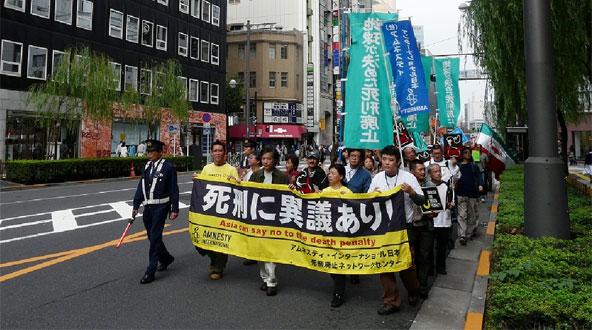
Article(s)
10.10.10 Looking back on the World Day in Asia
on 3 December 2010
The Anti-Death Penalty Asia Network rounds up reports from the main events organised across the Asia-Pacific region for World Day Against the Death Penalty on October 10.
2010
Australia
Bangladesh
India
Indonesia
Iran (Islamic Republic of)
Italy
Japan
Pakistan
Singapore
Terrorism
United States
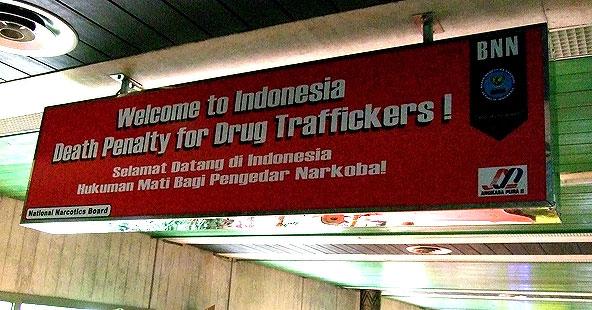
Article(s)
Indonesia: execution for drug crimes is no solution
By World Coalition Against the Death Penalty, on 26 January 2015
In an open letter, the World Coalition and its members, including KONTRAS and Amnesty International, condemn the Indonesian government’s politicizing of the death penalty to show its commitment to eradicating drug-related crimes. Recent resumptions of executions show one thing, they are carried out for political reasons only: in Pakistan to show that it is tough on terrorism, Jordan that it tough on crime and Indonesia that it is tough on drugs. Instead, those states should abolish the death penalty to show their commitment to upholding human rights. The next World Day against the Death Penalty will be dedicated to the issue of capital drug crimes.
2015
Drug Offenses
Indonesia
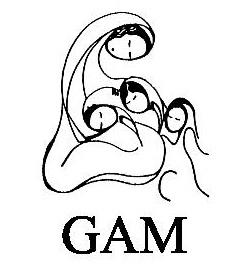
Member(s)
Grupo de Apoyo Mutuo (GAM)
on 30 April 2020
Mandate and goals: Organization of relatives of missing persons illegally detained which works for justice, investigating past cases, opening legal proceedings against the national system and the human rights system. Kind of actions: We work for justice, for the strengthening of the institutions linked to the criminal investigation and against the death penalty. Actions aiming […]
2020
Guatemala
Article(s)
World Coalition hands 5 million signatures over to the UN
on 1 November 2007
The President of UN General Assembly is to receive 5 million signatures calling for a moratorium on executions collected worldwide by the Community of Sant’Egidio and the World Coalition Against the Death Penalty.
2007
Albania
Angola
Brazil
Croatia
Gabon
Mexico
Moratorium
New Zealand
Philippines
Portugal
Article(s)
Website Redesign and Development
By World Coalition Against the Death Penalty, on 15 January 2020
The World Coalition Against the Death Penalty’s office in Paris area, France, is currently calling for web development and makeover tenders.
The objective is to award a contract to develop and maintain the World Coalition Against the Death Penalty’s new website, based on technical specifications.
2020
cropped-favicon.png
on 26 April 2021
https://worldcoalition.org/wp-content/uploads/2021/04/cropped-favicon.png
2021

Member(s)
American Friends Service Committee
on 30 April 2020
The American Friends Service Committee (AFSC) carries out service, development, social justice and peace programs throughout the world. It was founded by Quakers during World War 1 to provide conscientious objectors with an opportunity to aid civilian war victims. The AFSC’s work is based on the Quaker belief in the worth of every person, and […]
2020
United States
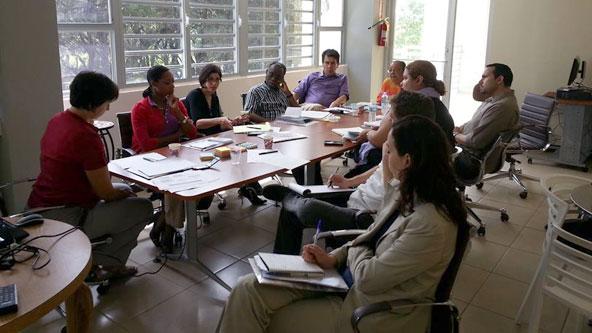
Article(s)
Caribbean network fleshes out plans for abolition
By Emile Carreau, on 16 January 2014
The Executive Committee of the Greater Caribbean for Life (GCL) network, constituted in October 2013, met in San Juan, Puerto Rico on January 11 and 12 to devise strategies to combat the death penalty in the region.
2014
Moratorium
Trinidad and Tobago
Article(s)
Country-by-country death penalty data now available
By Center for International Human Rights at Northwestern University School of Law, on 19 April 2011
A new statistic and legal database designed by Northwestern University in partnership with the World Coalition offers a unique view of the use of capital punishment in more than 90 states.
2011
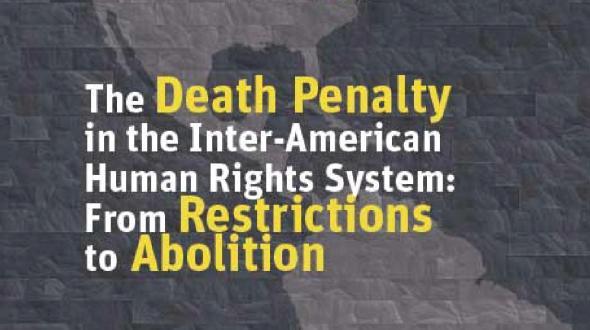
Article(s)
From restrictions to abolition
By World Coalition Against the Death Penalty, on 17 August 2012
The Inter-American Commission on Human Rights has published a new report and called for abolition of the death penalty.
2012
Antigua and Barbuda
Argentina
Bahamas
Barbados
Belize
Bolivia (Plurinational State of)
Brazil
Canada
Chile
Colombia
Costa Rica
Cuba
Dominica
Dominican Republic
Ecuador
El Salvador
Grenada
Guatemala
Guyana
Haiti
Honduras
Jamaica
Mexico
Nicaragua
Panama
Paraguay
Peru
Saint Kitts and Nevis
Saint Lucia
Saint Vincent and the Grenadines
Trinidad and Tobago
United States
Uruguay
Venezuela (Bolivarian Republic of)

Article(s)
Abolition of the death penalty for terrorism in Chad
By FIACAT, on 30 April 2020
On 28 April 2020, the Chadian National Assembly unanimously voted to abolish the death penalty for crimes of terrorism.
2020
Chad

Article(s)
Zambia is the 25th African State to Abolish the Death Penalty
By Bronwyn Dudley, World Coalition Against the Death Penalty, on 6 January 2023
On 23 December 2022, Zambian President Hakainde Hichilema signed into law Penal Code (Amendment) Bill number 25, which bans the death penalty and the offence of criminal defamation of the president.
2023
Zambia
Article(s)
Project officer – The Death Penalty Project
By The Death Penalty Project, on 23 January 2018
The Death Penalty Project is recruiting a Project Officer.
2018
United Kingdom
Document(s)
Palestine – Committee Against Torture – Death Penalty – June 2022
on 21 July 2022
2022
NGO report
World Coalition
State of Palestine
More details Download [ pdf - 1747 Ko ]
The State of Palestine on 1 April 2014 ratified the Convention against Torture and Other Cruel, Inhuman or Degrading Treatment or Punishment. On 28 December 2017, the State of Palestine signed the Optional Protocol to the Convention against Torture and Other Cruel, Inhuman or Degrading Treatment or Punishment. On 18 March 2019, the State of Palestine also ratified the Second Optional Protocol to the International Covenant on Civil and Political Rights (ICCPR), which aims to abolish the death penalty. The State of Palestine has not yet abolished the death penalty. Indeed-as described herein-the 14 June 2007 split in power between the Palestinian Authority in Ramallah in the West Bank under President Abbas, and the Hamas movement in Gaza, has been followed by many documented executions in Gaza without the requisite signature of President Abbas, and Gazan military courts conduct trials of civilians, where they can be sentenced to death.
This report considers the prevalence of torture and other issues ancillary to the death penalty itself: confessions under torture or degrading treatment, due process, access to legal counsel, death-row conditions, and methods of execution.
- Document type NGO report / World Coalition
- Countries list State of Palestine
Document(s)
FACTS AND FIGURES LGBTQIA+ People and the Death Penalty – 21st World Day Against the Death Penalty
By World coalition against the death penalty, on 15 August 2023
2023
World Coalition
Gender
frMore details Download [ pdf - 502 Ko ]
- Document type World Coalition
- Themes list Gender
- Available languages Faits et chiffres Les personnes LGBTQIA+ et la peine de mort - 21e journée mondiale contre la peine de mort
Document(s)
Detailed Factsheet 2010
By World Coalition against the death penalty , on 10 October 2010
2010
Campaigning
Trend Towards Abolition
frMore details Download [ pdf - 479 Ko ]
Detailed Factsheet 2010
- Document type Campaigning
- Themes list Trend Towards Abolition
- Available languages Fiche détaillée 2010
Article(s)
Call for actions on World Day in the Maldives and Turkey
By World Coalition Against the Death Penalty, on 17 June 2020
The World Coalition Against the Death Penalty and its 14 international member organizations active in the Philippines, the Maldives and Turkey are part of a joint project which aims to combat the resurgence of the death penalty, particularly in the aforementioned three countries at risk.
2020
Maldives
Turkey
Article(s)
Program and Admin Assistant
By World Coalition Against the Death Penalty, on 5 January 2017
The World Coalition Against the Death Penalty recruits interns twice a year for a period of 6 months (from March to August and from September to February).
2017
Article(s)
Call for actions in Barbados and Eastern Caribbean
By Greater Caribbean For Life and World Coalition Against the Death Penalty, on 10 July 2018
As part of a joint project which aims to create a platform for death penalty reform in Barbados and the Eastern Caribbean, the Greater Caribbean For Life (GCL) and the World Coalition are lanching a call for actions.
2018
Barbados
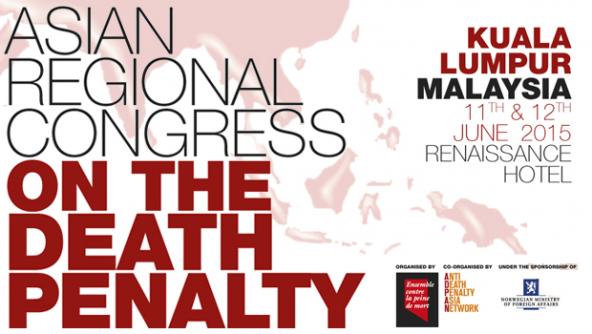
Article(s)
Worldwide abolitionists to focus on South-East Asia
By World Coalition Against the Death Penalty, on 30 April 2015
The next general assembly of the World Coalition will take place on Saturday 13 June 2015 in Kuala Lumpur, Malaysia, following the Regional Congress against the Death Penalty organised by ECPM in partnership with ADPAN on 11-12 June 2015.
2015
Malaysia
Article(s)
Call for actions on World Day in Sub-Saharan Africa 2
By World Coalition Against the Death Penalty, on 17 June 2020
The World Coalition Against the Death Penalty (World Coalition) and FIACAT are part of a joint project which aims to contribute to the abolition of the death penalty in Sub-Saharan Africa.
2020
Burkina Faso
Burundi
Cameroon
Congo
Côte d'Ivoire
Democratic Republic of the Congo
Ghana
Guinea
Kenya
Liberia
Mauritania
Niger
Senegal
Sierra Leone
Togo
United Republic of Tanzania
Article(s)
Translations in Chinese
By World Coalition Against the Death Penalty, on 21 January 2013
The World Coalition Against the Death Penalty’s office in Paris, France, is currently calling for translation contributions in Chinese.
The objective is to award contracts for translation services for the publications of the World Coalition Against the Death Penalty for 30 months (mid 2013 – mid 2015).
2013
Article(s)
WANTED: Program and Admin Assistant
By World Coalition Against the Death Penalty, on 19 August 2016
The World Coalition Against the Death Penalty is looking for an intern for a period of 6 months, starting mid-September.
2016
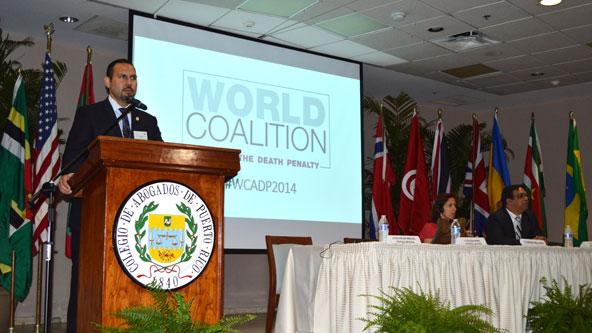
Article(s)
AGM focuses on mental health and progress in the Caribbean
By Inès Oulmokhtar, on 16 May 2014
The World Coalition is holding its General Assembly between 20-22 June in San Juan, Puerto Rico and invites the public to take part in the event.
2014
Puerto Rico

Article(s)
‘Sakineh’ campaign to culminate in worldwide protests
on 25 August 2010
What started as an effort to save an Iranian woman sentenced to death by stoning is turning into a global movement for human rights and against capital punishment.
2010
Cruel, Inhuman and Degrading Treatment and Punishment
Iran (Islamic Republic of)
Public Opinion
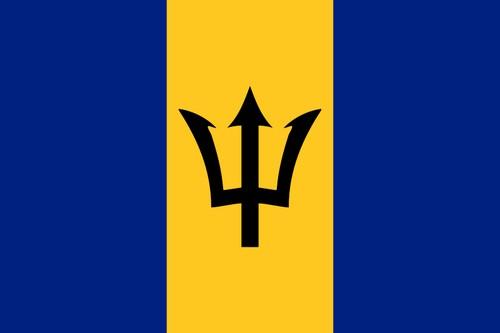
Article(s)
Call for actions on World Day in Barbados and the Eastern Caribbean States
By World Coalition Against the Death Penalty, on 1 July 2020
The Greater Caribbean For Life (GCL) and the World Coalition Against the Death Penalty are part of a joint project, led by The Death Penalty Project and funded by the European Union, which aims to create a platform for death penalty reform in Barbados and the Eastern Caribbean, leading to eventual abolition
2020
Barbados

Article(s)
Call for actions on World Day in the Philippines
By World Coalition Against the Death Penalty, on 1 July 2020
The World Coalition Against the Death Penalty and its 14 international member organizations active in the Philippines, the Maldives and Turkey are part of a joint project which aims to combat the resurgence of the death penalty, particularly in the aforementioned three countries at risk.
Philippines
Document(s)
The war on drugs, forensic science and the death penalty in the Philippines
By Maria Corazon A.De Ungria and Jose M.Jose, on 10 August 2021
2021
Academic report
Drug Offenses
Philippines
More details See the document
The effectiveness of the death penalty to deter heinous crimes remains a contentious issue even though it has been abolished in many countries. Three years into President Rodrigo Duterte’s administration, the push to re-impose the death penalty is being taken seriously.
There is urgency in providing options to the drug problem other than killing drug suspects in the streets or sentencing them to death. The drug problem is a complex issue and exposes the human vulnerability of its users for criminal exploitation.
We propose here that addressing these vulnerabilities in a balanced and comprehensive manner through health-focused, rights-based criminal justice responses, conducting forensic science-based drug investigations and determining the social causes of drug abuse is an alternative solution that demands cooperation across different sectors of society as well as underscores the fundamental value of human life.
- Document type Academic report
- Countries list Philippines
- Themes list Drug Offenses
Document(s)
Initiatives World Day 2004
By World Coalition against the death penalty , on 10 October 2004
2004
Campaigning
Trend Towards Abolition
frMore details See the document
Initiatives World Day 2004
- Document type Campaigning
- Themes list Trend Towards Abolition
- Available languages Initiatives journée mondiale 2004
Document(s)
Reducing Facial Stereotype Bias in Consequential Social Judgments: Intervention Success With White Male Faces
By Youngki Hong, Kao-Wei Chua, & Jonathan B. Freeman, Columbia University, on 25 January 2024
2024
Article
United States
More details See the document
Published on December 18, 2023.
Initial impressions of others based on facial appearances are often inaccurate yet can lead to dire outcomes. Across four studies, adult participants underwent a counterstereotype training to reduce their reliance on facial appearance in consequential social judgments of White male faces. In Studies 1 and 2, trustworthiness and sentencing judgments among control participants predicted whether real-world inmates were sentenced to death versus life in prison, but these relationships were diminished among trained participants. In Study 3, a sequential priming paradigm demonstrated that the training was able to abolish the relationship between even automatically and implicitly perceived trustworthiness and the inmates’ life-or-death sentences. Study 4 extended these results to realistic decision-making, showing that training reduced the impact of facial trustworthiness on sentencing decisions even in the presence of decision-relevant information. Overall, our findings suggest that a counterstereotype intervention can mitigate the potentially harmful effects of relying on facial appearance in consequential social judgments.
- Document type Article
- Countries list United States
Document(s)
Leaflet – World Day 2022
By the World Coalition Against the Death Penalty, on 24 June 2022
2022
World Coalition
arfrMore details Download [ pdf - 1095 Ko ]
Leaflet for the 20th World Day against the death penalty (2022), on torture and the death penalty.
- Document type World Coalition
- Available languages للیوم العالمي لمناھضة عقوبة الإعدام كتيب باللغة العربيةBrochure - Journée mondiale 2022
Document(s)
Leaflet – World Day 2024 & 2025
By World coalition against the death penalty, on 10 June 2024
2024
Campaigning
World Coalition
arfrMore details Download [ pdf - 1325 Ko ]
Every 10th October, the World Coalition Against the Death Penalty and abolitionist actors worldwide celebrate the World Day Against the Death Penalty. It is an occasion to highlight the progress achieved in the global campaign for the abolition of capital punishment. In 2024 and 2025, the World Day will serve as an opportunity to challenge […]
- Document type Campaigning / World Coalition
- Available languages كتيب - اليوم العالمي 2024 و 2025Brochure - Journée mondiale 2024 & 2025
Document(s)
Capital punishment and implementation of the safeguards guaranteeing protection of the rights of those facing the death penalty
By United Nations , on 26 May 2021
2021
United Nations report
aresfrruzh-hantMore details See the document
Summary
In its resolution 1745 (LIV) of 16 May 1973, the Economic and Social Council invited the Secretary-General to submit to it, at five-year intervals starting from 1975, periodic updated and analytical reports on capital punishment. The Council, in its resolution 1995/57 of 28 July 1995, recommended that the quinquennial reports of the Secretary-General continue to cover also the implementation of the safeguards guaranteeing protection of the rights of those facing the death penalty.
In the same resolution, the Council requested the Secretary-General, in preparing the quinquennial report, to draw on all available data, including current criminological research. The present report, which is the tenth quinquennial report, contains a review of the use of and trends in capital punishment, including the implementa tion of the safeguards during the period 2014–2018.
In accordance with resolutions 1745 (LIV) and 1990/51, of 24 July 1990, of the Economic and Social Council, as well as its decision 2005/247 of 22 July 2005, the present report is submitted to the Council at its substantive session of 2020, and will also be before the Commission on Crime Prevention and Criminal Justice at its twenty-ninth session and the Human Rights Council at its forty-fourth regular session.
The report on the 2014–2018 quinquennium confirms the trend documented in previous reports towards abolition and restriction of the use of capital punishment in most countries. The number of States that have abolished the death penalty in law and in practice continued to grow. This is reflected in the increased number of States bound by treaty obligations not to implement the death penalty. The quinquennium also witnessed some years of dramatic increases in the number of executions, which were carried out by a small number of States. The situation stabilized at the end of the survey period, and the number of recorded executions in the final year, 2018, was the lowest in many years. The safeguards guaranteeing the protection of the rights of those facing the death penalty apply to States that retain capital punishment. It is of concern, however, that the death penalty continued to be imposed on persons below 18 years of age at the time of commission of the offence, and that death sentences were imposed in cases where the “most serious crimes” standard was not met and in cases of trials that did not comply with international standards.
- Document type United Nations report
- Available languages عقوبة اإلعدام وتنفيذ الضمانات التي تكفل حماية حقوق من يواجهون عقوبة اإلعدامLa pena capital y la aplicación de las salvaguardias para garantizar la protección de los derechos de las personas condenadas a la pena de muertePeine capitale et application des garanties pour la protection des droits des personnes passibles de la peine de mortСмертная казнь и применение мер, гарантирующих защиту прав тех, кому грозит смертная казнь死刑和保护死刑犯权利的保障措施的执行情况
Document(s)
Efforts towards abolition of the death penalty: Challenges and prospects
By Death Penalty Research Unit (DPRU), University of Oxford, on 5 February 2024
2024
Academic Article
Trend Towards Abolition
More details See the document
Published in December 2023.
This paper reflects on the role of international human rights treaties in promoting universal abolition and progressive restriction of the death penalty. It suggests that over the past quarter of a century a ‘new human rights dynamic’ has aimed to generate universal acceptance that however it is administered, the death penalty violates the human rights of all citizens exposed to it. Nevertheless, defences of capital punishment based on principles of national sovereignty are engrained in some parts of the world, particularly in Asia and the Middle East. The human rights project struggles to make inroads into such jurisdictions where political will is opposed to abolition, and trenchant protection of sovereignty threatens the very universality of these rights.
- Document type Academic Article
- Themes list Trend Towards Abolition

Member(s)
Youth Safety Awareness Initiative (Crime Si Poa®)
on 27 March 2024
Youth Safety Awareness Initiative mission is to promote social justice and a crime-free society through education, advocacy and social enterprise, targeting children and young people. Youth Safety Awareness Initiative primarily focus on discouraging at-risk and vulnerable youth from engaging in criminal activities and addressing threats to peace through behavioral and attitudinal change, while promoting the […]
2024
Kenya

Member(s)
European Saudi Organization for Human Rights (ESOHR)
on 29 November 2023
Founded in 2013 in response to extensive human rights abuses in Saudi Arabia, European Saudi Organization for Human Rights (ESOHR), which is based in Berlin, emerged in the face of a robust campaign aimed at suppressing civil society and curtailing the activities of human rights advocates. ESOHR is committed to the abolition of the death […]
2023
Saudi Arabia
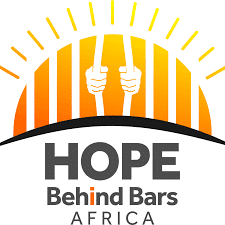
Member(s)
Hope Behind Bars Africa
on 5 September 2023
Hope Behind Bars Africa provides free legal services and direct support to indigent individuals in contact with the justice system while promoting criminal justice reforms through research, evidence-based advocacy, and technology.
2023
Nigeria

Member(s)
The Death Penalty Project (DPP)
on 30 April 2020
The Death Penalty Project is an international legal action charity, based in London, working to promote and protect the human rights of those facing the death penalty. We provide free legal representation to death row prisoners around the world, with a focus on Commonwealth countries, to highlight miscarriages of justice and breaches of human rights. […]
2020
United Kingdom
Member(s)
Center for Constitutional Rights
on 30 April 2020
Center for Constitutional Rights is an American NGO based in New York. The Center for Constitutional Rights is committed to fighting injustice on many fronts, as demonstrated by the breadth of our cases as well as our organizing work. CCR works on a wide range of issues: illegal surveillance and attacks on dissent, Criminal Justice […]
United States

Member(s)
Witness to Innocence
on 30 April 2020
The mission of Witness to Innocence (WTI) is to unite U.S. exonerated death row survivors and their loved ones to become a powerful force for social justice and transformation. WTI seeks to abolish the death penalty, to reform the U.S. criminal justice system to prevent wrongful convictions, and to secure fair financial compensation and social […]
United States
Member(s)
Legal Defence & Assistance Project (LEDAP)
on 30 April 2020
LEDAP – Legal Defence & Assistance Project provides legal aid to victims of human rights violations, campaign for abolition of the death penalty in Nigeria, documentation of unlawful killings in Nigeria, support to torture survivors, domestic violence support to victims, legislative advocacy on criminal justice, gender violence, human rights. LEDAP is a member of the […]
Nigeria

Member(s)
LBH Masyarakat (Community Legal Aid Institute)
on 5 May 2021
LBH Masyarakat (Community Legal Aid Institute) is a collective of individuals who believe that every human has potential to actively participate in legal aid, to uphold justice, and to contribute to the protection of human rights. LBH Masyarakat believes in equality, non-discrimination, and acknowledgement of inherent human dignity. LBH Masyarakat defends the right of every […]
2021
Indonesia

Member(s)
Equal Justice USA
on 30 April 2020
Equal Justice USA, founded in 1990, is a national organization that works to transform the justice system by promoting responses to violence that break cycles of trauma. We work at the intersection of criminal justice, public health, and racial justice to elevate healing over retribution, meet the needs of survivors, advance racial equity, and build […]
2020
United States
Document(s)
Impact of the World Coalition’s Strategic Plan 2018–2022
By World Coalition Agianst the Death Penalty, on 22 August 2023
2023
World Coalition
Trend Towards Abolition
frMore details Download [ pdf - 265 Ko ]
- Document type World Coalition
- Themes list Trend Towards Abolition
- Available languages Impact du Plan stratégique 2018-2022 de la Coalition Mondiale
Document(s)
Extrajudicial, summary or arbitrary executions
By United Nations General Assembly, on 5 August 2022
2022
United Nations report
More details See the document
To mark the fortieth anniversary of the establishment of the mandate on extrajudicial, summary or arbitrary executions, the Special Rapporteur on extrajudicial, summary or arbitrary executions, Morris Tidball-Binz, offers a reflection from a historical perspective on the establishment of the mandate and the subsequent evolution of its working methods. He retraces the development of international standards and guidelines elaborated with the substantial contribution and support of the various mandate holders. The report also contains an analysis of the question of the death penalty from the perspective of whether it is compatible with the absolute prohibition of torture or other cruel, inhuman or degrading treatment or punishment and recommendations aimed at ensuring the protection of the right to life, as guaranteed under international human rights instruments.
- Document type United Nations report
Document(s)
2020 Activity Report
By World Coalition Against the Death Penalty, on 9 September 2021
2021
World Coalition
frMore details Download [ pdf - 496 Ko ]
Activity Report of the World Coalition Against the Death Penalty for 2020, as adopted by its General Assembly on 18 June 2021
- Document type World Coalition
- Available languages Rapport d'Activité 2020
Document(s)
Children, Youth and the Death Penalty
By International Commission against the Death Penalty, on 23 June 2023
2023
NGO report
Juveniles
More details See the document
ICDP announces the launch of its latest report: Children, Youth and the Death Penalty. The issue of how the death penalty affects children and youth is often ignored by policy makers. This report aims to change that by putting the protection of children’s rights at the center of the debate on the death penalty.
The report builds on the panel discussion titled “Youth and the Death Penalty,” which was organized by the International Commission against the Death Penalty (ICDP) and the Government of Australia. The discussion was held on 29 June 2022, at the sidelines of the 50th session of the UN Human Rights Council, in Geneva.
- Document type NGO report
- Themes list Juveniles
Document(s)
Ripoti Ya Kimataifa Ya Amnesty International Hukumu Za Kifo Na Watu Walionyongwa 2022
By Amnesty International, on 16 May 2023
2023
NGO report
More details See the document
Utafiti wa Amnesty International kuhusu matumizi ya adhabu ya kifo mwaka wa 2022 ulionyesha kwambakulikuwa na ongezeko kubwa la idadi ya watu wanaojulikana kuwa walinyongwa duniani, likiwemo ongezekokubwa la watu walionyongwa kutokana na makosa yanayohusiana na dawa za kulevya
- Document type NGO report

Member(s)
Reprieve
on 30 April 2020
Reprieve is a small, feisty registered charitable organisation of human rights defenders. Our strategy is to use strategic interventions to end the use of the death penalty globally, and to end extreme human rights abuses carried out in the name of “counterterrorism” or “national security” We work for among the most disenfranchised people in society, […]
2020
United Kingdom
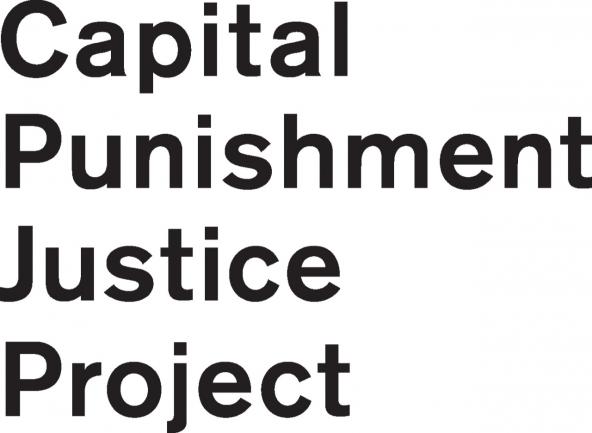
Member(s)
Capital Punishment Justice Project (CPJP)
on 30 April 2020
Capital Punishment Justice Project – CPJP (formerly known as Reprieve Australia) is an Australian NGO working to assist in the provision of effective legal representation and humanitarian assistance to those facing the death penalty at the hands of the State. CPJP also works to raise awareness of the application of the death penalty by the […]
Australia
Document(s)
Death Row in the USA: Death Penalty Cases and Statistics by State
By Legal Defense Fund , on 13 May 2024
2024
Academic report
Death Row Conditions
United States
More details See the document
LDF issues a quarterly report entitled Death Row USA that contains death penalty information, death row populations by state, and other capital punishment statistics in the United States.
- Document type Academic report
- Countries list United States
- Themes list Death Row Conditions
Document(s)
Right Here, Right Now Life Stories from America’s Death Row
By Lynden Harris, on 10 August 2021
2021
Book
Death Row Conditions
United States
More details See the document
Upon receiving his execution date, one of the thousands of men living on death row in the United States had an epiphany: “All there ever is, is this moment. You, me, all of us, right here, right now, this minute, that’s love.”
Right Here, Right Now collects the powerful, first-person stories of dozens of men on death rows across the country. From childhood experiences living with poverty, hunger, and violence to mental illness and police misconduct to coming to terms with their executions, these men outline their struggle to maintain their connection to society and sustain the humanity that incarceration and its daily insults attempt to extinguish.
By offering their hopes, dreams, aspirations, fears, failures, and wounds, the men challenge us to reconsider whether our current justice system offers actual justice or simply perpetuates the social injustices that obscure our shared humanity.
- Document type Book
- Countries list United States
- Themes list Death Row Conditions
Document(s)
Carrying out executions took a secret toll on workers — then changed their politics
By Chiara Eisner, on 16 November 2022
2022
Article
United States
More details See the document
Most of the workers NPR interviewed reported suffering serious mental and physical repercussions. But only one person said they received any psychological support from the government to help them cope. The experience was enough to shift many of their perspectives on capital punishment. No one who NPR spoke with whose work required them to witness executions in Virginia, Nevada, Florida, California, Ohio, South Carolina, Arizona, Nebraska, Texas, Alabama, Oregon, South Dakota or Indiana expressed support for the death penalty afterward, NPR found.
- Document type Article
- Countries list United States
Document(s)
State-Sanctioned Killing of Sexual Minorities: Looking Beyond the Death Penalty
By Mai Sato, Christopher Alexander - Eleos Justice and Capital Punishment Justice Project, Monash University, on 10 August 2021
2021
Academic report
Australia
Cruel, Inhuman and Degrading Treatment and Punishment
More details See the document
This report examines the extent to which states sanction the killing of sexual minorities. It looks beyond those countries that impose the death penalty for same-sex intimacy to the far greater number of countries in which state actors commission, condone, endorse and enable such killings.
He argues that the state-sanctioned killing of sexual minorities is often perpetrated well beyond the boundaries of the law, and even in countries that do not criminalise such conduct.
- Document type Academic report
- Countries list Australia
- Themes list Cruel, Inhuman and Degrading Treatment and Punishment
Document(s)
Leaflet Women and the Death Penalty
By World coalition against the death penalty, on 2 October 2023
2023
World Coalition
Gender
frMore details Download [ pdf - 1448 Ko ]
- Document type World Coalition
- Themes list Gender
- Available languages Brochure femme et peine de mort
Document(s)
(Not) Talking about Capital Punishment in the Xi Jinping Era
By Tobias Smith, Matthew Robertson and Susan Trevaskes, on 1 September 2022
2022
Academic report
China
More details See the document
An investigation into the death penalty in the People’s Republic of China in the Xi Jinping era (2012–) shows that unlike previous administrations, Xi does not appear to have articulated a signature death penalty policy. Where policy in China is unclear, assessing both the quality and frequency of discourse on the topic can provide evidence regarding an administration’s priorities.
This article was first published in Crime Justice Journal: https://www.crimejusticejournal.com/issue/view/119
- Document type Academic report
- Countries list China
Document(s)
Anti–Death Penalty Advocacy: A Lawyer’s View from Australia
By Julian McMahon SC, on 1 September 2022
Article
Australia
More details See the document
This article reviews the executions of Australians in the region and the Australian responses over the past two decades. Informed by the author’s legal defence role in death penalty cases in Singapore and Indonesia and other countries, the article explores developments in anti–death penalty advocacy since 2015: the parliamentary enquiry, the ‘whole of government’ strategy led by the Department of Foreign Affairs and Trade and the efforts made by Australia and Australians in Asia.
This article was first published in Crime Justice Journal: https://www.crimejusticejournal.com/issue/view/119
- Document type Article
- Countries list Australia
Member(s)
Legal Awareness Watch (LAW)
on 30 April 2020
Legal Awareness Watch (LAW) is a nonpartisan, non-profitable NGO registered under law since 1999, holding registration number 1388. Since its creation, LAW has been advocating, and raising awareness in Pakistan on human rights of prisoners in 104 Pakistani prisons i.e. the right to vote, right to dignity, right to life etc. Apart from the promotion […]
2020
Pakistan

Member(s)
Collectif des Organisations des Jeunes Solidaires (COJESKI)
on 30 April 2020
The Collectif des organisations des jeunes solidaires du Congo-Kinshasa RDC [Collective of Youth Solidarity Organisations in Congo-Kinshasa DRC, COJESKI-RDC] is a platform consisting of 340 youth organisations which has been operating in Congo-Zaire since 1995. Its main aim is to promote and defend positive human values, sustainable development and good governance of the Democratic Republic […]
Democratic Republic of the Congo
Document(s)
The Modern Federal Death Penalty: A Cruel and Unusual Penalty
By Hannah Freedman, on 1 September 2022
2022
Academic report
Cruel, Inhuman and Degrading Treatment and Punishment
United States
More details See the document
The federal death penalty today would be unrecognizable to the founders, who saw the ultimate penalty as a means of protecting sovereign interests and who therefore carefully guarded the practice at English common law of yielding national interests to local ones. Over the course of time, the geographic distribution and substantive basis for the penalty changed, but until the modern era, its underlying purpose did not. As the Trump era executions made painfully clear, however, the federal death penalty today is different. It is disproportionately imposed for crimes that could have readily been prosecuted by other jurisdictions and that have little obvious connection to federal sovereignty, and it is disproportionately imposed against non-white people. By any rational measure, it is vanishingly rare, and it serves no valid penological goal. Simply put, federal death sentences today are, in most cases, “cruel and unusual in the same way that being struck by lightning is cruel and unusual.”
- Document type Academic report
- Countries list United States
- Themes list Cruel, Inhuman and Degrading Treatment and Punishment

Member(s)
International Federation for Human Rights (FIDH)
on 30 April 2020
The International Federation for Human Rights (FIDH)’s mandate is to act effectively to ensure all the rights laid down in the Universal Declaration of Human Rights are respected. These include civil and political rights, as well as economic, social and cultural ones. The FIDH is a federation of 141 leagues in 100 countries. It coordinates […]
2020
France

Member(s)
Japan Innocence and Death Penalty Research Center
on 30 April 2020
The JIADEP mission is to assist those who have been wrongfully incarcerated and sentenced to death, and to educate the public on the tragedies of criminal justice in Japan by lecturing, writing, and demonstrating.
Japan

Member(s)
The Rights Practice
on 30 April 2020
The Rights Practice works to promote and strengthen the protection of human rights. Our work is currently based in China in three programme areas: improving access to justice, strengthening public participation in decision making and promoting dignity of the person. We believe that the death penalty violates the right to life and is the ultimate […]
United Kingdom
Document(s)
Leaflet Lobbying
By World Coalition against the death penalty , on 10 October 2007
2007
Campaigning
Trend Towards Abolition
frMore details See the document
Leaflet Lobbying
- Document type Campaigning
- Themes list Trend Towards Abolition
- Available languages Brochure Lobbying 2007
Document(s)
Swahili – Ripoti ya kimataifa ya amnesty international: hukumu za kifo na watu walioadhibiwa kifo 2023
on 29 May 2024
2024
NGO report
Trend Towards Abolition
More details Download [ pdf - 1806 Ko ]
Ufuatiliaji wa Amnesty International wa matumizi ya adhabu ya kifo duniani ulibaini watu
1,153 wanaofahamika kuwa walinyongwa mwaka 2023, ambalo ni ongezeko la asilimia
31 kutoka 883 mwaka 2022. Hata hivyo nchi zinazowanyonga watu zilipungua kwa
kiwango kikubwa kutoka 20 mwaka 2022 hadi 16 mwaka 2023
- Document type NGO report
- Themes list Trend Towards Abolition
Document(s)
Capital Punishment, 2019 – Statistical Tables
By U.S. Department of Justice Tracy L. Snell, on 10 August 2021
2021
Government body report
Death Row Conditions
Drug Offenses
United States
More details See the document
This report presents statistics on persons who were under sentence of death or were executed in 2019
- Document type Government body report
- Countries list United States
- Themes list Death Row Conditions / Drug Offenses
Document(s)
The Problem of False Confessions in the Post – DNA World
By Steven A. Drizen / Richard A. Leo / North Carolina Law Review 82(3), 894-1009, on 1 January 2004
2004
Article
United States
More details See the document
In recent years, numerous individuals who confessed to and were convicted of serious felony crimes have been released from prison— some after many years of incarceration—and declared factually innocent, often as a result of DNA tests that were not possible at the time of arrest, prosecution, and conviction. DNA testing has also exonerated numerous individuals who confessed to serious crimes before their cases went to trial. Numerous others have been released from prison and declared factually innocent in cases that did not involve DNA tests, but instead may have occurred because authorities discovered that the crime never occurred or that it was physically impossible for the (wrongly) convicted defendant to have committed the crime, or because the true perpetrator of the crime was identified, apprehended, and convicted. In this Article, we analyze 125 recent cases of proven interrogation-induced false confessions (i.e., cases in which indisputably innocent individuals confessed to crimes they did not commit) and how these cases were treated by officials in the criminal justice system.This Article has three goals. First, we provide and analyze basic demographic, legal, and case-specific descriptive data from these 125 cases. This is significant because this is the largest cohort of interrogation-induced false confession cases ever identified and studied in the research literature. Second, we analyze the role that (false) confession evidence played in these cases and how the defendants in these cases were treated by the criminal justice system. In particular, this Article focuses on how criminal justice officials and triers-of-fact respond to confession evidence, whether it biases their evaluations and overwhelms other evidence (particularly evidence of innocence), and how likely false confessions are to lead to the wrongful arrest, prosecution, conviction, and incarceration of the innocent. Analysis of the aforementioned questions leads to the conclusion that the problem of interrogationinduced false confession in the American criminal justice system is far more significant than previously supposed. Furthermore, the problem of interrogation-induced false confessions has profound implications for the study of miscarriages of justice as well as the proper administration of justice. Third, and finally, this Article suggests that several promising policy reforms, particularly mandatory electronic recording of police interrogations, will minimize the number of false confessions and thereby inject a much needed dose of justice into the American criminal justice system.
- Document type Article
- Countries list United States
- Themes list Due Process , Networks,
Document(s)
Deeply Rooted: How Racial History Informs Oklahoma’s Death Penalty
By Death Penalty Information Center, on 14 October 2022
2022
Article
United States
More details See the document
These individual cases illustrate issues found in systemic reviews of the state’s death penalty system. In 2017, a bipartisan commission that included former prosecutors, defense lawyers, judges, citizens, crime victim advocates, and law professors found that the state’s capital punishment system created “unacceptable risks of inconsistent, discriminatory, and inhumane application of the death penalty.” In an extensively researched report, the commission recommended a moratorium on executions until reforms were made. Five years later, Oklahoma has enacted “virtually none” of the suggested reforms.
- Document type Article
- Countries list United States
Document(s)
The politics of capital punishment for foreign nationals in Iran
By Death Penalty Research Unit (DPRU), University of Oxford, on 5 February 2024
2024
Academic Article
Iran (Islamic Republic of)
More details See the document
Published in December 2023.
This paper seeks to map the political economy of capital punishment in Iran, in particular in relation to dual and foreign nationals, and examines its external and internal functions. The external functions include suppressing the ‘cultural threat’ of cross-border drug trafficking, achieving more power in sanctions negotiations, seeking reciprocal prisoner swaps or demanding recompense for outstanding multinational debt. The internal functions include quashing protests against the regime, supressing separatist movements, or even just ‘otherness’. It is evident that those facing disadvantage across foreign national and intersectional lines face the death penalty disproportionately. In addition, although only representing a fraction of the overall population of death row, the arbitrary detention of dual nationals has a disproportionate political function.
- Document type Academic Article
- Countries list Iran (Islamic Republic of)

Member(s)
Quaker United Nations Office, Geneva
on 30 April 2020
The Quaker United Nations Office (QUNO) serves as a Quaker presence at the United Nations (UN) in Geneva and New York. QUNO represents Quaker concerns at the international level, under the auspices of the Friends World Committee for Consultation (Quakers), the international Quaker body which has General Consultative Status with the UN. In addition to […]
2020
Switzerland
Document(s)
Death in the time of Covid-19: Efforts to restore the death penalty in the Philippines
By Jose M.Jose and Maria Corazon A.De Ungria, on 10 August 2021
2021
Academic report
Drug Offenses
Philippines
More details See the document
The Philippine Congress recently passed a bill amending the Dangerous Drugs Act of 2002 and reimposing the penalty of life imprisonment to death for specific-drug related offenses. House Bill No. 7814 also allows the presumption of guilt in certain drug-related crimes unless otherwise proven, thereby overturning the long-standing constitutional presumption of innocence.
The bill has been sent to the Senate for its concurrence and could only be several steps away before being signed into law by President Rodrigo R. Duterte. This paper discusses the ramifications of the new bill and the questioned timeliness of its passage when the country continues to have a large and overcrowded prison population and a significant number of deaths due to SARS-CoV-2 in Southeast Asia.
The government’s lapses in following the 2021 national vaccination plan became apparent in the 31 March 2021 assessment made by the congressional health panel on the government’s response to the pandemic.
From the authors’ perspective, the urgency of using the country’s limited resources to help medical frontliners and local government units prevent further infections and save lives should have outweighed the efforts exerted to pass a law that legalized the death penalty for the third time in the Philippines.
- Document type Academic report
- Countries list Philippines
- Themes list Drug Offenses
Document(s)
2021 World Day Report
on 10 June 2022
2022
World Coalition
Women
frMore details Download [ pdf - 4154 Ko ]
On 10 October 2021, the World Coalition and abolitionists around the world celebrated the 19th World Day Against the Death Penalty (‘World Day’). Every year on World Day, the World Coalition highlights one problematic aspect of the Death Penalty. In 2021, the World Day explored the theme “Women sentenced to death, an invisible reality” to raise awareness on how the treatment of gender and gender-based inequalities create particularly precarious conditions for women sentenced to capital punishment. This report presents the activities organised for the 19th World Day and the media coverage it received.
- Document type World Coalition
- Themes list Women
- Available languages Rapport journée mondiale 2021
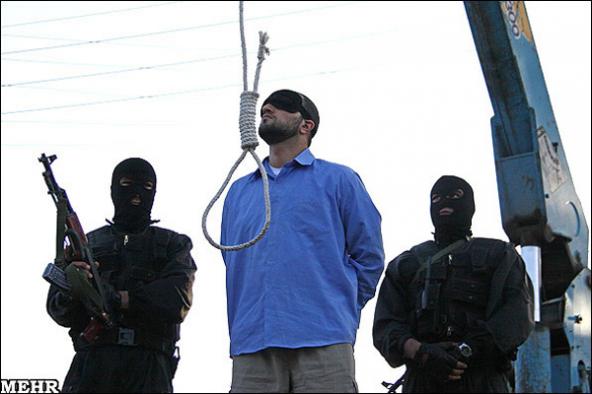
Article(s)
Outrage as Iran’s execution figures explode
on 12 February 2011
Iran hanged 121 people in six weeks between 20 December 2010 and 31 January 2011, many of them after unfair trails and for crimes that did not result in a person’s death.
2011
Drug Offenses
Fair Trial
Iran (Islamic Republic of)
Juveniles
Moratorium
Article(s)
“Young people over 13 will understand”
on 28 February 2010
Wen-Yu Weng (19), a student and debating coach from Thailand who attended the World Congress workshop on educational strategies, thinks young teenagers are mature enough to understand the death penalty debate – just like she did.
2010
Thailand

Article(s)
Belarus ends more than one year without execution
By Daria Gribanova, on 14 April 2014
Despite an execution this month, Amnesty International’s latest annual report on the death penalty shows Belarus did not kill any prisoner last year, meaning Europe and Central Asia was execution-free for the first time since 2009. This achievement bolsters local abolitionists – despite the risks they face in their activism.
2014
Belarus
Belarus
Moratorium
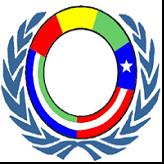
Member(s)
Society for Human Rights and Development Organisation (SHRDO)
on 30 April 2020
The Society for Human Rights and Development Organisation (SHRDO) – Formally MRU youth parliament – purpose is for peace & development and its activities are base on Sub Regional Peace Consolidations, Peace Promotion & Peace Maintenance across Sierra Leone, Liberia, Guinea & Ivory Coast by the Youngsters/ Youth Leaders themselves that agitates for regional reintegration, […]
2020
Sierra Leone
Document(s)
European Court for Human Rights cases involving the death penalty
By European Court for Human Rights Press Unit, on 24 June 2022
2022
International law - Regional body
Regional body report
Cruel, Inhuman and Degrading Treatment and Punishment
Death Row Conditions
Fair Trial
More details See the document
“[T]he [European Court of Human Rights] in Öcalan did not exclude that Article 2 [of the European Convention on Human Rights, protecting the right to life,] had already been amended so as to remove the exception permitting the death penalty. Moreover, … the position has evolved since then. All but two of the Member States have now signed Protocol No. 13 [to the Convention, concerning the abolishment of the death penalty in all circumstances,] and all but three of the States which have signed have ratified it. These figures, together with consistent State practice in observing the moratorium on capital punishment, are strongly indicative that Article 2 has been amended so as to prohibit the death penalty in all circumstances. Against this background, the Court does not consider that the wording of the second sentence of Article 2 § 1 continues to act as a bar to its interpreting the words ‘inhuman or degrading treatment or punishment’ in Article 3 [of the Convention, prohibiting torture and inhuman or degrading treatment,] as including the death penalty …” (Al-Saadoon and Mufdhi v. the United Kingdom judgment of 2 March 2010, § 120).
- Document type International law - Regional body / Regional body report
- Themes list Cruel, Inhuman and Degrading Treatment and Punishment / Death Row Conditions / Fair Trial
Document(s)
From seventy-eight to zero: Why executions declined after Taiwan’s democratization
By Fort Fu-Te Liao / Punishment and Society, on 8 September 2020
2020
Article
Taiwan
More details See the document
This article examines, from a legal perspective, why executions in Taiwan declined from 78 in 1990 to zero in 2006. The inquiry focuses on three considerations: the number of laws that authorized employment of the death penalty; the code of criminal procedure; and the manner in which executions were carried out, including the manner in which amnesty was granted. The article argues that the ratification of international covenants and constitutional interpretations did not play a significant role in the decline, and that several factors that did play a role included the annulment or amendment of laws, changes in criminal procedure, establishment of and further amendments to guidelines for execution and two laws for reducing sentences. This article maintains that the absence of executions in 2006 is a unique situation that will not last because some inmates remain on death row, meaning that executions in Taiwan will continue unless the death penalty is abolished. However, the article concludes that the guarantee of the utmost human right, the right to life, can be sustained in Taiwan through the demands of democratic majority rule.
- Document type Article
- Countries list Taiwan
- Themes list Networks,
Document(s)
Execution in Saudi Arabia 2023: Ongoing Bloodshed with Unusual Sentences
By The European Saudi Organization for Human Rights (ESOHR), on 23 January 2024
2024
NGO report
Saudi Arabia
More details See the document
Published on 22 January، 2024.
The European Saudi Organization for Human Rights views 2023 as a year that demonstrated Saudi Arabia’s inconsistency in using the death penalty. Besides the unexplained shift in the types of executed sentences, the implementation of death sentences for drug-related charges, and the disregard for international legal opinions, the high numbers indicate Saudi Arabia’s determination to use the death penalty without restraint.
In Saudi Arabia in 2023, 172 executions were carried out according to data from the Ministry of Interior published by the official news agency. The number of executions increased by 15% compared to the figure announced by the Ministry of Interior in 2022, where 147 sentences were reported, despite the mass execution of 81 individuals in 2022.
- Document type NGO report
- Countries list Saudi Arabia
Document(s)
Report of the Secretary General: Question of the death penalty 2021 (A/HRC/48/29)
By Office of the High Commissioner for Human Rights (OHCHR), on 15 September 2021
2021
United Nations report
Public Opinion
More details See the document
The present report is submitted pursuant to decision 18/117 and resolution 42/24 of the Human Rights Council. The report focuses on consequences arising from the lack of transparency in the application and imposition of the death penalty on the enjoyment of human rights.
- Document type United Nations report
- Themes list Public Opinion
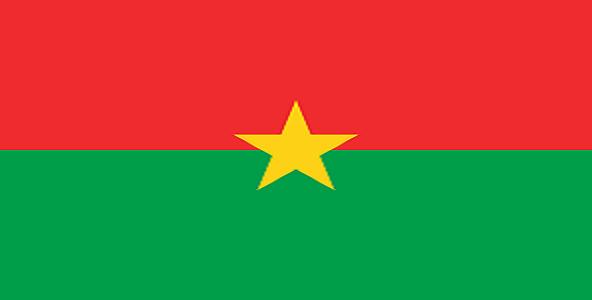
Article(s)
Burkina Faso has joined the global trend toward abolition of the death penalty in Africa
By International Federation of Human Rights (FIDH), on 6 June 2018
On 31 May, the Burkinabe Parliament abolished the death penalty by adopting a new criminal code that excludes it from the arsenal of sentences regardless of crimes considered and circumstances in which they were committed. Thus, Burkina Faso become the 144th States in the World and the 40th African State abolitionist in law and in practice. Our organizations welcome this major step which strengthens the Burkinabe legal framework for the protection of human rights and is part of regional and international movement in favour of the abolition of this inhuman, ineffective and irreversible punishment.
2018
Burkina Faso
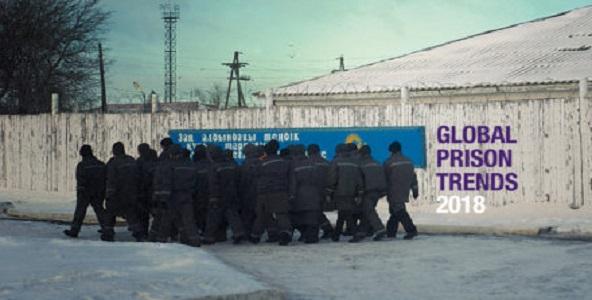
Article(s)
Global Prison Trends 2018 4th Edition
By Penal Reform International, on 6 June 2018
Global Prison Trends 2018 is the fourth edition in PRI’s annual flagship Global Prison Trends series, which identifies topical developments and challenges in criminal justice and prison policy and practice. It is published in collaboration with the Thailand Institute of Justice, and features a foreword by the Rt Hon Helen Clark, Member of the Global Commission on Drug Policy, Former Prime Minister of New Zealand and Former Administrator of the United Nations Development Programme.
Death Row Conditions

Article(s)
Saudi Arabia Reviews Death Sentences Issues Against Children
By Louis Linel, on 1 September 2020
According to the Saudi Human Rights Commission, the death sentence issued against Ali al-Nimr, Dawoud al-Marhoun and Abdullah al-Zaher will be reviewed in accordance with reforms decreed in the Kingdom in April on juvenile criminal justice.
2020
Juveniles
Saudi Arabia
Article(s)
China reduces the number of crimes punishable by death to 46, but keeps drug trafficking in the list
By Aurélie Plaçais, on 7 October 2015
China removes nine non-violent and rarely used criminal offenses from capital punishment.
2015
China
Drug Offenses

Article(s)
3+4: Death Penalty Cases Now Jury Cases
By Nicolas Chua, on 23 November 2018
On 24 April 2018, ‘The People’s Jury Law’ established a new judicial framework to deal with serious criminal cases, including death penalty cases. As of its enactment, death penalty cases in China are now jury cases.
2018
China
Document(s)
Compendium of case law of the European Court of Human Rights on the death penalty and extrajudicial execution
By Jeremy McBride, Council of Europe, on 24 April 2022
2022
International law - Regional body
Legal Representation
More details See the document
The compendium’s aim is to assist national judges, prosecutors and lawyers from the 46 member states of the Council of Europe to deal with extradition or deportation cases when there is a risk of the death penalty being imposed in third countries or of extrajudicial execution. It also aims at enabling legal professionals from countries where the death penalty still exists to develop arguments based upon the reasoning of the case law of the European Court of Human Rights. It contains relevant extracts from the Court’s case law, structured in a user-friendly way.
- Document type International law - Regional body
- Themes list Legal Representation
Document(s)
Executing the Mentally Ill: When Is someone Sane Enough to Die?
By Michael Mello / Criminal Justice, on 1 January 2007
2007
Article
United States
More details See the document
Mental illness is a phenomenon that knifes across the entire corpus of our criminal justice system. From interrogations and waivers of Miranda rights, to consent to searches and seizures, to plea negotiations and the capacity to stand trial, to calculating sentences and participating in appellate and postconviction proceedings, mental illness warps the machinery of our criminal law and challenges its most cherished assumptions about free will, decisional competence, and culpability. This is so regardless of whether or not life hangs in the balance. But when the stakes are life and death, the structural distortions caused by mental illness become magnified, and the contradictions can rise to constitutional magnitude.
- Document type Article
- Countries list United States
- Themes list Mental Illness,
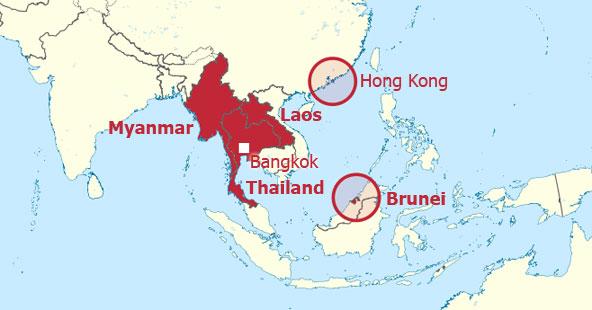
Article(s)
Moving away from the death penalty in Asia
By Sandra Babcock (DeathPenaltyWorldwide.org) in Bangkok, on 25 October 2013
Following up on the World Day Against the Death Penalty, successive meetings in Thailand and in China highlight decreasing support for capital punishment among Asian governments and public opinion.
2013
Brunei Darussalam
China
Japan
Lao People's Democratic Republic
Moratorium
Myanmar
Public Opinion
Thailand
Document(s)
Facts and Figures 2010
By World Day against the death penalty , on 10 October 2010
2010
Campaigning
Trend Towards Abolition
frMore details Download [ pdf - 81 Ko ]
Facts and Figures 2010
- Document type Campaigning
- Themes list Trend Towards Abolition
- Available languages Faits et chiffres 2010
Document(s)
Politics of International Advocacy Against the Death Penalty: Governments as Anti–Death Penalty Crusaders
By Mai Sato, on 1 September 2022
2022
Academic report
More details See the document
Two-thirds of the countries worldwide have moved away from the death penalty in law or in practice, with global and regional organisations as well as individual governments working towards universal abolition. This article critically examines the narratives of these abolitionist governments that have abolished the death penalty in their country and have adopted the role of ‘moral crusaders’ (Becker 1963) in pursuit of global abolition. In 2018, the Australian Government, while being surrounded by retentionist states in Asia, joined the anti–death penalty enterprise along with the European Union, the United Kingdom and Norway. Using the concepts of ‘moral crusader’ (Becker 1963) and ‘performativity’ (Butler 1993), this article argues that advocacy must be acted on repeatedly for governments to be anti–death penalty advocates. Otherwise, these government efforts serve political ends in appearance but are simply a self-serving form of advocacy in practice.
This article was first published in Crime Justice Journal: https://www.crimejusticejournal.com/issue/view/119
- Document type Academic report
Document(s)
2022 World Day Report
By World coalition against the death penalty, on 12 June 2023
2023
Campaigning
World Coalition
frMore details Download [ pdf - 1557 Ko ]
On 10 October 2022, the World Coalition and abolitionists around the world celebrated the 20th World Day Against the Death Penalty (‘World Day’). Every year on World Day, the World Coalition highlights one problematic aspect of the Death Penalty.
- Document type Campaigning / World Coalition
- Available languages Rapport journée mondiale 2022
Document(s)
World Coalition Strategic Plan 2023-2027
By World Coalition Against the Death Penalty, on 22 August 2023
2023
World Coalition
Trend Towards Abolition
frMore details Download [ pdf - 455 Ko ]
- Document type World Coalition
- Themes list Trend Towards Abolition
- Available languages Plan Stratégique 2023-2027 de la Coalition Mondiale
Article(s)
Internship opportunity at Centre on the Death Penalty, NLU Delhi
By NLU Delhi, on 1 April 2016
The Centre on the Death Penalty is keen to develop a robust and rewarding internship programme that will provide meaningful exposure to the complexities and nuances, in particular, of the administration of the death penalty and the criminal justice system in India more generally, therefore the centre introduces internship program where they accept interns on rolling basis.
2016
India
Article(s)
Video about the death penalty in the Palestinian Territories
By Federica Merenda, on 9 March 2016
Since the establishment of the Palestinian Authority, in 1994, 172 death sentences have been issued in the territories under its authority, of which 30 in the West Bank and 142 in the Gaza Strip, 87 since Hamas gained the control of the area in 2007. The video points out arguments against the death penalty: it is ineffective, irreversible, against human dignity and it has no deterrence effect as proved by the high criminal rate shared by the countries which use it most. Besides, while the Islamic Law regards it as a right of the relatives of the victim, the Shaaria also supports forgiveness and compensation.
2016
State of Palestine
Preventing the return of the death penalty
on 19 August 2022
While the progress of the global abolitionist movement seems irreversible, some abolitionist in law or abolitionist in practice countries are threatening to return to the death penalty and resume executions. Since 2018, the World Coalition has been campaigning globally to systematize a response to these risks of reinstating the death penalty after its abolition.
2022
Maldives
Philippines
Sri Lanka
Turkey
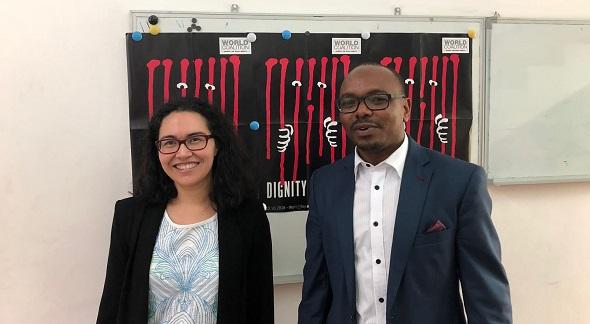
Article(s)
Hope resonates globally on World Day against the Death Penalty
By Nicolas Chua, on 25 October 2018
On 10 October 2018, abolitionist forces around the world celebrated the 16th World Day against the Death Penalty in a flurry of diverse activities and events meant to raise awareness on living conditions on death row. Activists in every continent mobilized civil society, challenged governments and reached out to the general public in a collective effort to promote and advance the common goal of universal, worldwide abolition of the death penalty.
2018
Death Row Conditions

